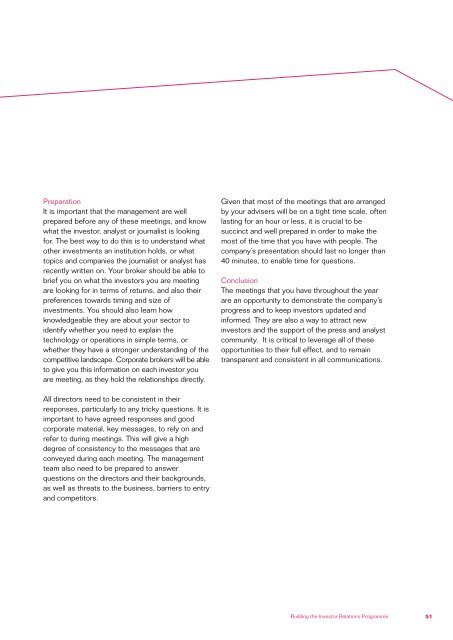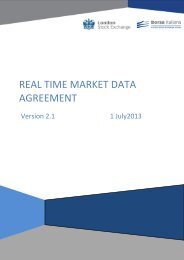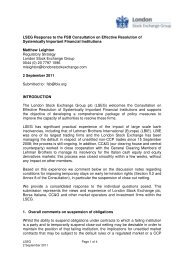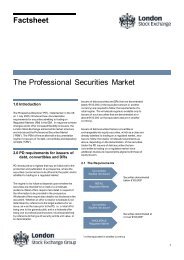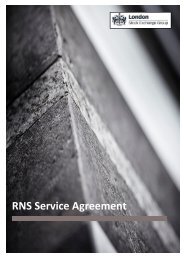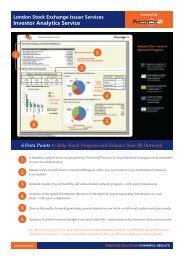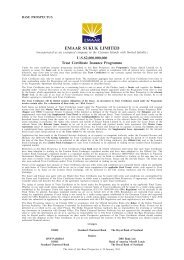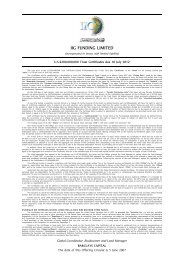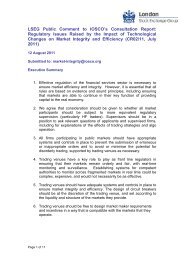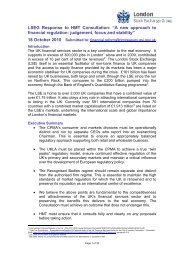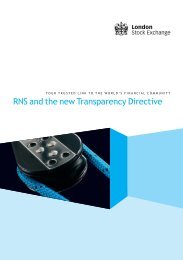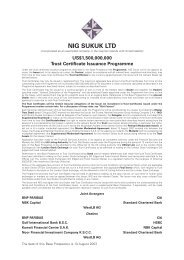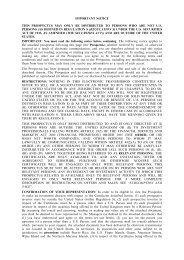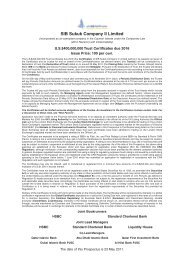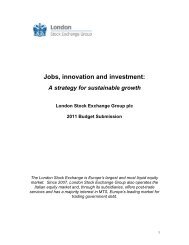Investor Relations - A Practical Guide - Investis
Investor Relations - A Practical Guide - Investis
Investor Relations - A Practical Guide - Investis
You also want an ePaper? Increase the reach of your titles
YUMPU automatically turns print PDFs into web optimized ePapers that Google loves.
Preparation<br />
It is important that the management are well<br />
prepared before any of these meetings, and know<br />
what the investor, analyst or journalist is looking<br />
for. The best way to do this is to understand what<br />
other investments an institution holds, or what<br />
topics and companies the journalist or analyst has<br />
recently written on. Your broker should be able to<br />
brief you on what the investors you are meeting<br />
are looking for in terms of returns, and also their<br />
preferences towards timing and size of<br />
investments. You should also learn how<br />
knowledgeable they are about your sector to<br />
identify whether you need to explain the<br />
technology or operations in simple terms, or<br />
whether they have a stronger understanding of the<br />
competitive landscape. Corporate brokers will be able<br />
to give you this information on each investor you<br />
are meeting, as they hold the relationships directly.<br />
Given that most of the meetings that are arranged<br />
by your advisers will be on a tight time scale, often<br />
lasting for an hour or less, it is crucial to be<br />
succinct and well prepared in order to make the<br />
most of the time that you have with people. The<br />
company’s presentation should last no longer than<br />
40 minutes, to enable time for questions.<br />
Conclusion<br />
The meetings that you have throughout the year<br />
are an opportunity to demonstrate the company’s<br />
progress and to keep investors updated and<br />
informed. They are also a way to attract new<br />
investors and the support of the press and analyst<br />
community. It is critical to leverage all of these<br />
opportunities to their full effect, and to remain<br />
transparent and consistent in all communications.<br />
All directors need to be consistent in their<br />
responses, particularly to any tricky questions. It is<br />
important to have agreed responses and good<br />
corporate material, key messages, to rely on and<br />
refer to during meetings. This will give a high<br />
degree of consistency to the messages that are<br />
conveyed during each meeting. The management<br />
team also need to be prepared to answer<br />
questions on the directors and their backgrounds,<br />
as well as threats to the business, barriers to entry<br />
and competitors.<br />
Building the <strong>Investor</strong> <strong>Relations</strong> Programme 51


